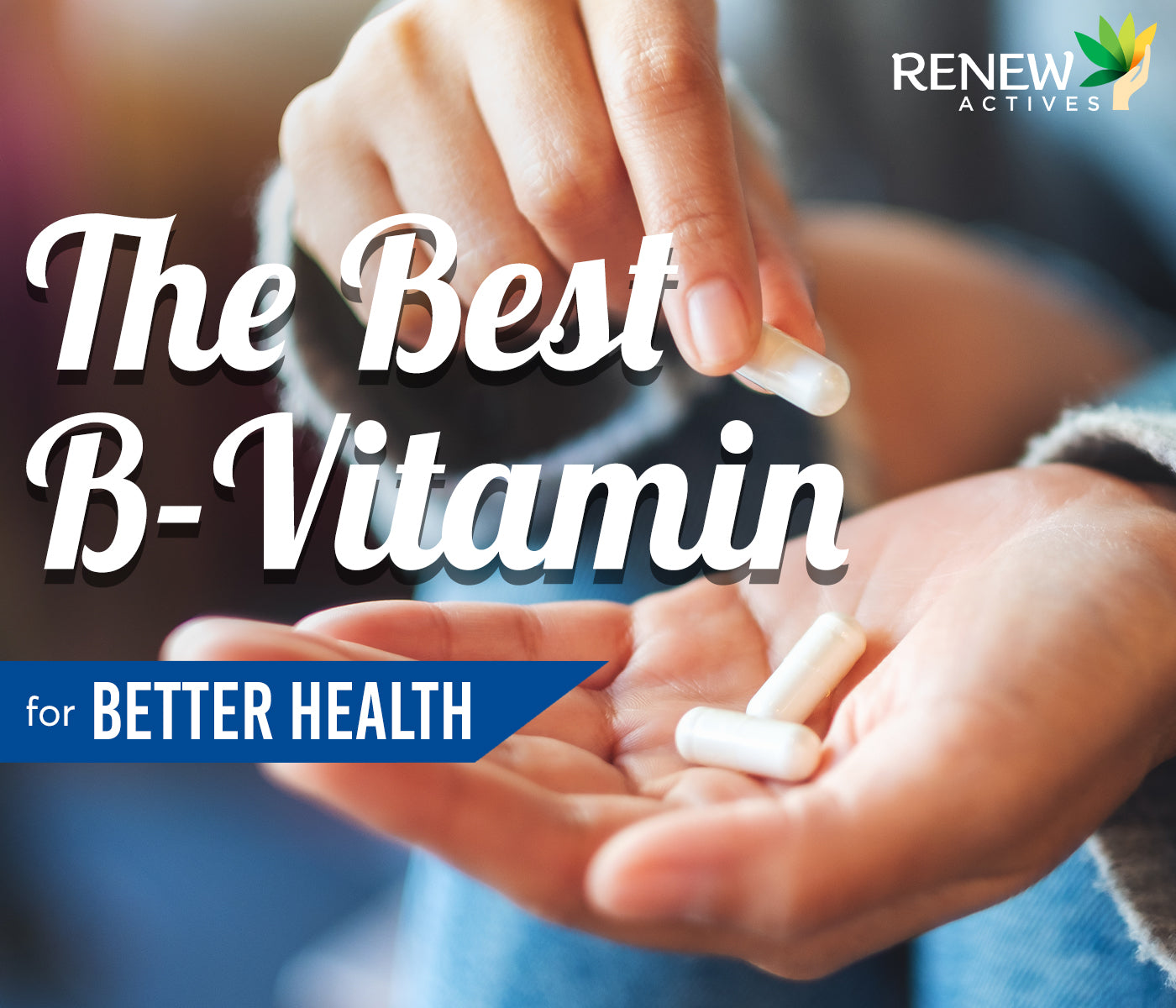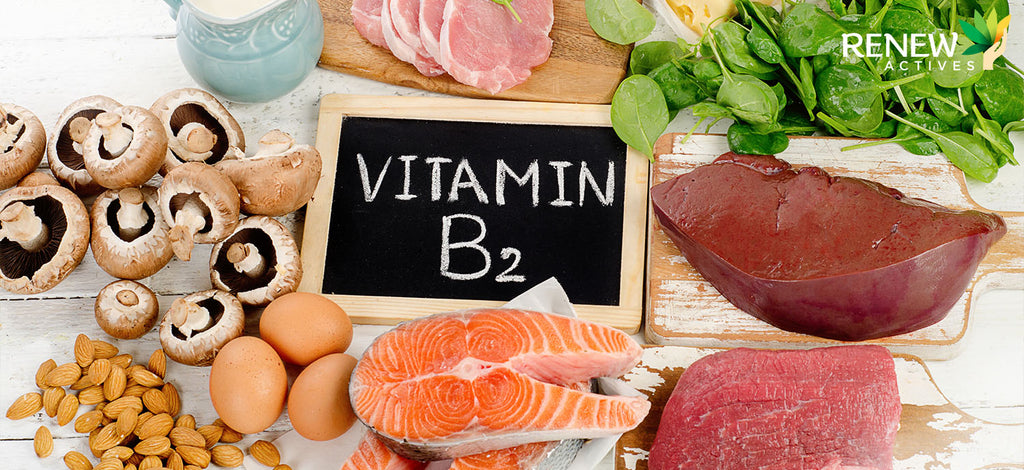
The Best B-Vitamins for Better Health
The B vitamin family is made up of eight B vitamins and though they are recognized as a group, each of these vitamins comes with their own unique functions.
Which begs the question…
Do we need all eight B vitamins?
Which of these B vitamins are considered the most important?
In this blog post, we will break down each of the B vitamins from the B vitamin family so you can decide which ones you most need and which ones you can live without.
Vitamin B1

Also known as thiamin, vitamin B1’s biggest contributions to the body is its ability to convert food into energy, support the nervous system, and protect the immune system.
Some of the best sources of vitamin B1 are kale, spinach, whole grains, pork, red meat, and nuts just to name a few.
Vitamin B2

Vitamin B2, also known as riboflavin, is responsible for breaking down the fats, proteins, and carbohydrates in your diet.
Riboflavin also plays an important role in the body’s growth as well as the creation of red blood cells.
Vitamin B2 can usually be found in almonds, broccoli, eggs, beef, and salmon, among others.
Vitamin B3

Also called niacin or niacinamide, vitamin B3 is known for its positive effects on the skin and the digestive system.
It also helps boost HDL cholesterol, a good cholesterol that the body needs.
Some of the best food sources for vitamin B3 are green vegetables, legumes, fish, eggs, beans, and poultry.
Vitamin B5

Pantothenic acid, or vitamin B5, not only aids the body in breaking down fats and carbohydrates for energy but it also helps in the production of important hormones.
Vitamin B5 is found in just about every food group but they are usually most abundant in whole grains, egg yolk, avocado, kale, and dairy products.
Vitamin B6

One of the most popular among B vitamins, vitamin B6, or pyridoxine, plays a critical role in the metabolization of amino acids.
Vitamin B6 also plays a role in the creation of red blood cells as well as the production of serotonin and melatonin.
Bananas, egg, fish, meat, carrots, brown rice, berries, peaches, and spinach are considered to be some of the best sources for vitamin B6.
Vitamin B7

If you’re conscious about your looks, a consistent dose of vitamin B7 should help because it’s known as the beauty vitamin.
Vitamin B7 helps promote healthy hair, skin, and nails and is usually found in chicken, strawberries, pork, cauliflower, egg yolks, and nuts.
Vitamin B9

Vitamin B9, which also goes by the name folate, plays an important role in the health and development of a baby’s nervous system as well as in the production of red blood cells.
Common food sources for vitamin B9 are avocados, dark green leafy vegetables, beets, dates, beans, and salmon.
Vitamin B12

Vitamin B12 or cobalamin is also considered as one of the more popular B vitamins because of its versatility.
Not only does it help regulate and maintain a healthy nervous system but it also helps in red blood cell production (by working with vitamin B9) and hemoglobin production as well (by working with iron).
Vitamin B12 is usually found in foods that came from animals such as pork, clams, beef, chicken, and fish.
If you’re a vegan or a vegetarian, the best way to get your daily dose of vitamin B12 is through B supplements.
Final Thoughts
Each of the B Vitamins has crucial functions that can positively impact both the body and health, making each of them equally important.
Deciding on which of them is the absolute best will go down to the health benefit you’re after because a deficiency in any of these B vitamins can lead to various health problems.

